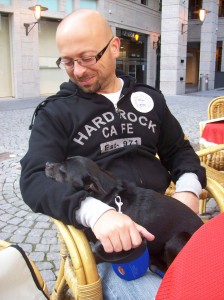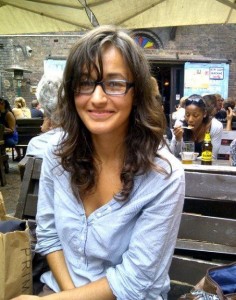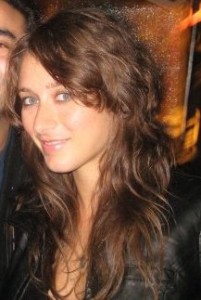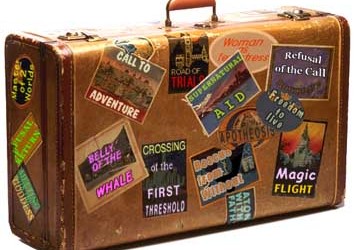
Why I left…
The Maltese have a long tradition of emigrating to other countries for better jobs and opportunities. However, since we joined the EU there has been a new wave (and a new type) of emigrant. Josanne Cassar has asked a few ex-pats what made them decide to take the plunge and leave Malta for pastures anew.
Sandro Mangion is a 39-year-old translator, based in Luxembourg, who has been living abroad for six years
“I had been toying with the idea of getting a taste of life abroad a few years before I actually left Maltain 2005. However, when my plans to go on a working holiday in Australiabecame unfeasible, I shifted the idea to the backburner. Instead, I focused on consolidating my fledgling freelance media career in Malta. Then, out of the blue, came a crucial development: someone to whom I had been introduced while filming a special episode of One TV’s Bla Aġenda at the European Parliament inStrasbourg, informed me of an exam that the EP was organising for temporary Maltese translators. I sat for it without any high expectations, thinking that would be the end of the story. However, when I received an employment offer fromLuxembourg, it did not take me long to accept the challenge, pack my luggage and fly out.
I must admit that having few family ties inMaltamade it much easier for me to decide. Being an only son whose parents had already passed away, and with enthusiastic support from my partner at the time, my biggest challenge was not to make up my mind but rather the logistics behind the move: getting all the pending freelance jobs done before my departure, finding suitable accommodation, deciding what to take up with us and what not, and finding the most convenient way to transport my dog and cats.
I would never have thought it would be so easy to settle down. A substantial, closely-knit Maltese community had already established itself inLuxembourgand their help made a huge difference. I couldn’t feel lost and alone, not even if I wanted to. And the support was not only moral: it was practical too. I got advice on the best way to search for a place to rent, on how to get around town, the country and the region, and how to get the best deals on furnishing the apartment. It was at this point that I learnt that the notable institutions with a base in the area were not limited to those of the EU but also included the king of ready-to-assemble furniture, IKEA. Their closest outlet is situated outside a tiny village in the middle of nowhere, right across the border inBelgium.
Speaking of IKEA reminds me of a funny anecdote related to my settling-in. We had managed to rent out a nice apartment in the city and the guy who lived there before us had sold us his IKEA bedroom. It was an incomplete set though, comprising a bed, a wardrobe, a chest of drawers but no bedside tables. So, after having checked online if that particular model was still in stock, we went to the closest outlet to finish the job. Now the drive fromLuxembourg Cityto IKEA is pretty short, taking only around 20 minutes. However, since we did not yet have our own car, we planned to go by bus to the nearest village, continue the rest of the journey to the store on foot, and then hire an IKEA van to get the furniture home. Getting hold of the unassembled, flat-packed, and rather heavy bedside tables was child’s play. We thought it was mission accomplished, but destiny had other plans for us. After having paid the stuff, we darted to the van rental counter, but they turned down our request claiming closing time was approaching. Unfortunately, the “please-help-us-poor-disoriented-unsettled-newcomers” look did not do the trick. To add insult to injury, they refused to store the items for pickup the following weekend.
Our panic button had been pushed. It was getting dark and we had not bothered to check the time of the last bus to Luxembourg City. So there we were, hitting the road back to bus stop in the closest village, carrying a box each as far as we could before stopping to rest and regain our breath. My partner, who was in a much better shape, could endure longer so I was constantly lagging behind while he turned back and yelled, “Ejja, ċaqlaq, għax se nitilfu tal-linja u nispiċċaw norqdu fuq l-istejġ!” (hurry up, move because we’re going to miss the bus and end up sleeping at the bus stop!)
One way or another, we arrived at the bus stop, happy to find out that the last bus toLuxembourg Citywas due in a few minutes. Phew! It was very dark, not even a light in the bus shelter, and it was bitterly cold too. As we were there chatting, a bus darted past us and kept on going into the village. The driver had probably not seen us in the dark. We had shivers down our spines. We tried to chase the bus but we couldn’t go very fast with those damn heavy things. We kept our fingers crossed that the bus would go through the village and come back through the same street on its way toLuxembourg. To make sure not to miss the bus this time round, we stayed right in the middle of the street, accompanied, of course, by our bedside tables. Thankfully we were right: after a few minutes we saw the bus’ headlamps heading in our direction. The driver must have thought us crazy as he saw us there, waving in his direction like two shipwrecked survivors. He waited patiently as we panted our way aboard and found a place where to put our merchandise. If I remember correctly, he pitied us so much that he didn’t even charge us. We were glad to have made it, albeit by the skin of our teeth. As we sat down and the bus got on the highway, we looked at each other and smiled… then we remembered that, when we reached our destination, we still had a half-hour walk to our flat!
It seems so long ago. I still could not speak French back then, and I can’t remember how we managed to communicate with the bus driver. Probably there was no need for words: he could understand perfectly by simply looking at us. But as time went by, the necessity of learning the languages spoken here became more and more evident.Luxembourghas three official languages – Luxembourgish, German and French. It is possible to survive using English alone if you limit yourself to the bubble of the EU institutions and to those venues, where English is widely spoken. However, choosing a country as your base, it makes sense to go the whole hog and live the experience to the full. Furthermore,Luxembourgis so tiny that we’re constantly crossing the borders withFrance,Germanyand the French-speaking part ofBelgium. Therefore, being fluent in French and German makes life much easier and more enjoyable. In these past six years, I have learnt French and I’m currently undertaking a German course. Luxembourgish is next on the cards.
People frequently ask me whether I plan on returning toMalta. As things stand, my partner and I have no intention of moving back before retirement age. Actually, we are seriously considering purchasing a property here. At the same time, I have not only kept my house inMaltabut also renovated it. It might seem like a contradiction, but not to me. It’s cool to be both an islander and an inhabitant of a country right in the heart of the continent at the same time. For the time being, unless circumstances compel us to change our mind, our base will remain here. We do feel at home here: we both enjoy our jobs and social life, lead a rather exciting life, and we are lucky to have a network of both Maltese and non-Maltese friends who make our life so fulfilling.
At the same time, I do miss my loved ones back inMalta. I fly to Malta several times a year, usually for a weekend or a long weekend. Upon approachingMalta, I always feel a certain sense of nostalgia and I can’t wait to see my loved ones, particularly my 99-year old grandmother, again. I always enjoy my stay and really appreciate the fact that my family, my partner’s family and my friends find, or make, time for me. I would be on holiday but they would be leading their normal, hectic lives. What is undeniable is that, since my departure in 2005, my relevant others and myself have moved on separately in life and there are less things we share than before. However, that’s only understandable, and the only way to fight it is to keep constantly in touch, as we in fact do.”
Elizabeth Galea is 23 and works as a translator in Brussels where she has lived for just nine months
“I decided I wanted to leave Malta when I heard about a call for applications for translators and decided to apply. When, after sitting for the translation test, I got called up for an interview, and was then eventually offered a temporary contract, I reasoned that I could not miss this opportunity, especially since inMaltaI had only had part-time jobs until then. I would get the chance to live in a completely new country, which at my age is obviously a very exciting prospect.
For me it wasn’t so difficult because my sister (Miriam Galea, see interview below) had already been here for a few years and she helped me settle down more easily. Besides,Brusselsis a relatively small city so it is not that difficult to get used to the place. However, it is always difficult and it takes time to build the kind of social connections and social life one has in one’s own country. To this day, over nine months after I moved, I cannot say I feel ‘at home’ in that sense.
I had my share of mishaps. I remember that the lock of the door of my apartment had been giving me trouble since the very beginning of my stay. Once, when a friend came to visit, it broke completely and we were locked inside! It did not help that the spare keys also happened to be in my apartment. After about an hour of sheer panic, we had the idea of shouting for help through the window. The people in the apartment beneath us heard us and we lowered the key with a piece of string.
Even though my French, especially my spoken French, isn’t that good, thankfully it was enough to manage, especially since inBelgiumyou do find a lot of people who can speak English. Now I feel that I understand the language better than when I arrived, and I am attending a language course at work. When people talk to me, I generally know what they are saying. However, my ability to answer them in their language leaves a lot to be desired!
What I miss most is my family, even the simple things like watching the news together while eating a little ħobż biż-żejt. I also miss my friends, although two close friends of mine work here too. I sometimes miss the weather, although I am not really one whose mood is very much affected by meteorological factors, and I miss the beautiful beautifulMediterranean sea. And the delicious Maltese bread. No baguette can compete with that!
Facebook, of course, is excellent, because you never truly lose touch with your friends. Moreover, through the links my friends share, I always know what is being hotly debated at home. I use Skype to phone my family and friends very often. I think it is much better than the phone as you feel like you are in the same room. I also visit Maltese news websites quite frequently, even if only to read the headlines.
I really do not know whether I would ever return toMalta. It depends on a lot of things, including some which are out of my control. Until now, I am only a temporary member of staff. Living here is very satisfying. I like my job and there is always something going on in a city and its closeness to other cities inEuropemakes life all the more exciting. However, I do not exclude returning toMaltaat some point either. I will see what the future holds. What keeps me in this country is not only my job, but also the valuable experiences I feel I am gaining not only professionally, but also in life in general.
Having said that, I always look forward to visitingMaltaand seeing my family and friends. I feel a bit disoriented during the first morning of my visit, usually because I want to do so many things in such a short time, but then I immediately feel comfortable and at home.
My first thought on landing: I get a feeling of great happiness
My last thought as I leave: how much I’ll miss my family and my friends and the lovely sun. I love living inBelgium but saying goodbye to those at home is always very difficult.”
Anna Maria Bartolo, 35, has been a translator in Luxembourg for four years
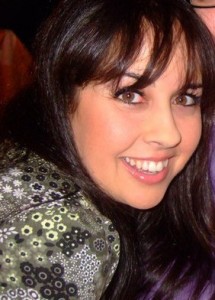 “I decided to make the move, because for the first time in my life I was going to have the career I really wanted – a language-focussed job, other than teaching.
“I decided to make the move, because for the first time in my life I was going to have the career I really wanted – a language-focussed job, other than teaching.
I admit it was tough financially until I received my first few paycheques. The cost of living is higher in Luxembourg, plus, shortly after my arrival, I had to shell out a few thousands of euros for accommodation which is notoriously expensive here.
It took me a couple of months to get used to my new way of life – from simple things like driving on the “wrong” side of the road (and likewise waiting at bus stops on the wrong side of the road), to getting to know the way things work in this country. And then came the memorable moment when I returned one evening to my flat in Luxembourg after a long weekend overseas and thought “Ok, I’m home.”
Inevitably, I have my share of funny anecdotes. I always used to think my name was a bit different – until my arrival inLuxembourgwhere one suddenly learns a variety of unusual names due to the international mix of people. Around two weeks into my job, I ran into a Finnish translator at work called Aino (pronounced “I know”), a name I had never heard of before The conversation went something like this:
Aino: You must be the new Maltese translator.
Me: Yes, I’m Anna Maria.
Aino (smiling): Aino.
Me (puzzled, thinking “She said she knows, so why won’t she tell me her name?”…Oh, ok.
French is the widely-used language here and the last time I had regularly spoken French was during my university course around a decade previously. When I landed in Luxembourg in 2007 my French was quite rusty. Tt was only when I got myself a French boyfriend in 2009 that my language skills really improved.
I do miss Malta occasionally. What I miss really is the familiarity of it all, plus a more relaxed way of life, the sun and the sea. InLuxembourg, I hang out with Maltese people as well as people of other nationalities, in the hope of striking a social balance. Meanwhile I keep in touch with Malta through Facebook and I visit the local newspaper websites a few times per week.
Would I ever come back, as in “to stay”? Not for many, many years, say until I am of retirement age, mainly because I have built myself a good life here and would like to continue reaping the benefits. When I land in Malta after a long absence, I do feel alienated and out of touch. It’s the traffic and pollution which get to me first and foremost, as well as people’s impatience on the roads. It also feels as though, with every visit, I discover something new on the island, be it the opening of a new shopping complex, the introduction of a new bus system, or a new legislation.
Eventually, as the days pass and I re-establish contact with family members and friends, I do slip back into my old routine. That too can be disturbing, because then comes the time to leave and I never seem ready for it.
My first thought when I see Malta from the plane: “Oh my sweet homeland, it’s so beautiful.”
When I land at MIA: “Will my luggage ever arrive?”
My last thought as I am leaving: “I’ll be back.”
Lisa and Mark Fiorentino are both doctors and have been living in Australia for five years
“Mark and I moved to Australia five years ago. Initially we lived in Sydney but last year we decided to move to Tasmania, where we currently reside. So you could almost say that we made the big move twice in five years, the only difference being that second time round we had a 5 month old baby in tow! There was no specific catalyst which made us bolt and leave Malta. It was rather, the meeting of two like-minded individuals, with similar ambitions. Having worked as doctors in Malta for a few years, we wanted the experience of practising medicine in another country, as well as just savouring life away from a tiny island. So when the opportunity of working in one of Sydney’s renowned hospitals came along, we packed our bags and left.
As with anything else, moving to Australia had its pros and cons. The most pressing issue facing us in the first few months was that of sitting for English language and medical exams, which are a pre-requisite for being awarded a residency visa and permanent work permits. But other than having to deal with bureaucratic paperwork for months on end, we found it really easy to settle into the Australian way of life. It helped that we were residing in Sydney initially, a cosmopolitan city with a rather subtropical climate. We were both particularly drawn to the relaxed Australian way of life, meritocratic administration, low population density and largely pristine environment, which are somewhat lacking in our home country.
There are occasions, however, when I do consider coming back to Malta, only because I miss my family and friends, particularly on special occasions such as Christmas. We do keep in touch through Facebook and Skype on a daily basis, but it’s never the same as having the ones you love next to you in person. We have been visiting on an annual basis since 2007. I tend to slip back into my old self whenever I visit, road rage included and I always depart with mixed emotions of relief and sadness; relief at going back to a cleaner, more orderly country but sad at having to leave my loved ones behind.
There is a large Maltese population in Sydney, largely living in the western suburbs, the vast majority of which migrated to Australia decades ago. While we were living in Sydney, we socialised mostly with our work colleagues. However, we do have a small group of close Maltese friends, with whom we still catch up whenever we visit Sydney, now that we’re living in Tasmania.
Our future destination and permanent place of residence is as yet unknown. We’re leaving all our options open and will, most likely, ride the tide of job opportunities.”
Miriam Galea, 28, went to live and work in Belgium as a translator four years ago
“I always wished to leave Malta for broader horizons, mainly for social and cultural reasons, but never thought I’d have the guts to at the time. When I was randomly sent an email about a job opening in Brussels, I just applied. When, to my surprise, I got chosen, after much stressful deliberation, I finally decided to pack my bags and leave.
It was much more difficult to take the decision to leave, as I had settled into a line of work that I loved back home, and things were looking good. Besides, I was terrified of life alone in an unknown city, never having lived alone and not having travelled much. But once I got there and got to know my housemates with whom I hit the town, I was feeling intoxicated and on top of the world. Now, after four years, it is feeling less like a holiday and more like real life and I have developed a more normal routine and found my own local niches and circles, but the novelty, thankfully, still remains.
I’ve had a number of funny episodes to look back on. I remember eating quite a lot of horrid-tasting meals during my first months living on my own as I didn’t even know how to boil an egg. I basically forgot to eat and survived on sweets, bread, cheese, veggies and apples at the beginning, then learnt my lesson the hard way when my meagre diet started taking its toll on my health. But all I wanted to do in the beginning was explore the city as much as I could.
As for the language, it took me a year or so to pick up French again (which I’d been good at while I was at school), but it did not create such a problem since at work I had Maltese colleagues. However it was scary when I needed to communicate with doctors, for example. The Bruxellois are used to foreigners though and quite a few can speak English.
Frankly, I don’t miss Malta that much. I certainly do not miss Maltese people. Of course I miss the beautiful weather and the island’s beauty. I do not hang out with Maltese people. There are very few I have much in common with, especially in Brussels, so it’s more refreshing and rewarding to hang out with more like-minded foreigners.
For the same reason, I do not really feel the urge to constantly know what’s going on in Malta. I am glad that my horizons broadened to more European and international ones since I left, and now I tend to follow international news before Maltese news. Of course, with regards to hot issues I do follow via Facebook.
Would I return? Not any time soon at any rate…maybe when I retire. My main motivation was the higher quality of the cultural and social life here.Brusselsis more central and therefore I have access to all the international cultural happenings and that is of utmost important to me. I can also travel much more easily. As for social life, I meet a large variety of interesting people with a more open-minded mentality than most Maltese. Of course, financially, I am very satisfied too for now, but that is not my main motivation.
On my first night out when I return to Malta I always feel rather weird. In fact, most of the time I end up hanging out with foreigners in my homeland. Then again, I was always quite a loner when I used to live in Malta so I am used to just going out on my own and socialising with whoever I happen to come across. I’m not sure I ever felt at home in Malta.
My first thought when I see Malta from the plane: “I do get a bit emotional when I see the tiny lights crowded on that little rock while landing, especially in summer when one can also see fireworks blowing off here and there.”
When I step out of the airport: “I love the warm air embracing me as soon as I step out of the plane. Since I left I have realised that warm air has a lovely scent.”
My thoughts as I leave:“When I leave it’s always a little depressing and tiring, I find that shifting lives so suddenly is a bit heavy albeit dynamic.”
Franklin Mamo, 37, works with the European Commission in Belgium, and has lived abroad for the last four years.
 “Mine was primarily a career move. But even if that was the most important reason it was the only one. After all, inMaltaI already had a good job which I liked. It’s also about broadening your horizons, living in a cosmopolitan city and working in an international environment. And, of course, the opportunity of doing something new also made a difference.
“Mine was primarily a career move. But even if that was the most important reason it was the only one. After all, inMaltaI already had a good job which I liked. It’s also about broadening your horizons, living in a cosmopolitan city and working in an international environment. And, of course, the opportunity of doing something new also made a difference.
It wasn’t too difficult to settle in. While no one country is like another, I had lived abroad before. The lessons which I had learnt then, such as living independently and away from all that is homely and familiar, proved valuable in helping me settle in this time round.
Before making the move, I had often been toBrusselsto attend meetings and that made it easier to find my way around. The sign that you’ve gone “native”? I suppose it’s when you’re stopped and asked for directions and you are able to point out the right way!
There were some amusing moments along the way. I remember my first day at work, a few days after my arrival, a good part of which is taken up with filling and filing all sorts of forms. Among other things we were to have our identity photo taken for cards, security badges, and the like. I was excited but tense. You stand in line and when it’s your turn you sit on this chair and before you know it, your photo is taken and you’re ushered out for the next person to sit and be photographed. Very mechanical. My turn came and my facial expression must have been pretty stiff because the photographer felt she had to look up from the camera and beg me: “Please, smile!”.
It’s an episode I remember every time I look at my security tag which ended up with a photo of me laughing rather than smiling. It’s also a personal reminder to approach all new experiences with good cheer.
As for the language, I studied French at secondary school so it was a case of brushing up the language. These days I get around pretty well. Dutch is also an official language in Brusselsbut so far, in my experience, it has been more a question of being able to read a few things rather than understand the spoken language. In any case, working in an international environment you find that very often the lingua franca is English.
Do I miss Malta? I don’t think I have much opportunity to miss anything. The most obvious thing to miss would be family and close friends but we phone, email, text or skype daily. The food, I miss at times. But that’s often a good reason to get down to some home cooking and with the stuff you can’t find here, I bring up myself when I visit or there’s always someone who’s visiting and who can bring it up. Which leaves the weather and that, unfortunately, we do not have much control over …
I’m the secretary of an association for Maltese residents in Belgium (www.maltin.be). Among other things, we organise social and cultural events; a few weeks ago we organised a visit to the studio here where tapestries from St John’s Co-Cathedral’s collection are undergoing restoration. But we don’t overdo it. We grew up in a globalised world which we generally navigate comfortably. We can appreciate our Maltese culture without needing to have it as some sort of security blanket. And inevitably, the personal, social and professional circles we have developed here have a strong international flavour to them. Trying to corral the Maltese or ring fence whatever is Maltese would be ridiculous.
Just like missing people and things, I find that news travels too quickly to even have the time to develop an “urge” for it. News is a 24/7 affair today and you do not have to wait for the morning paper or the 8 o’clock news. Keeping yourself up-to-date does not require that much of an effort, it becomes second nature.
It’s hard to tell whether I will ever come back. You start putting down roots, new attachments, building new networks, your old friends have their own lives and some of them, like you, have moved to another country. But it is a possibility for as long as I have home and family inMalta.
Primarily, what keeps me here is the job. The fundamental difference between an emigrant and an expat is that an emigrant chooses his country of residence which determines his employer while the expat chooses the employer and that determines his place of residence. Having said that, I likeBrusselsand I’m quite attached to the city. Of course, it is not as glamourous asLondonorParisbut it’s a good place to live in.
I also find it hard to describe how I feel when I visit. I definitely wouldn’t call it a “holiday”. I suppose it feels a bit like the Gozitan who works and lives inMaltaduring the week and then returns home for the weekend. For example, a good chunk of my time is taken up by the paperwork because legally you are still living part of your life here. But at the same time, the things you have to do, you do not feel you are pressed with the same urgency as before. It is the old routine, a bit different and a bit slower.
My first thought on landing: “Two and a half hours spent in the confines of a plane contribute to the first feeling on landing is “At last!”. But I also get a bit a bit of a high as soon as I see family members who have come to pick me. That wears off soon and usually becomes more of a studious curiosity on things which may no longer be so obvious after you have spent time away.
My last thought as I leave: Funnily enough, my last thought is always a kind of mental “to do” list next time I’m around. It’s a kind of admission that I’ll be back again sometime soon.
- October 12, 2011 No comments Posted in: Features

